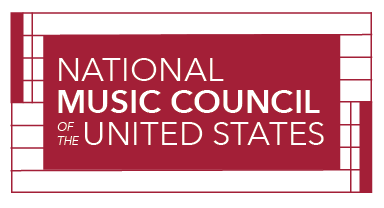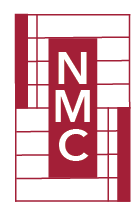There have been some exciting new developments in the Aerosol Study over the past week. The bullet points below highlight the most recent updates. All of the links can be found here.
- Scientific Study Prepress Paper (40+ pages)
- A scientific preprint of the research paper: “Measurements and Simulations of Aerosol Released while Singing and Playing Wind Instruments” based off the aerosol study is now available for public consumption as it is peer reviewed for publication in a scientific journal.
- Wall Street Journal Article with Visuals and Animations
- An article written based off the results and recommendations from the aerosol study with quotes, links, visuals and animations.
- Call to Submit Best Practices to the U.S. DOE
- The U.S. Department of Education has put out a call for real-life examples of successful back-to-school risk management practices for pre-k through college classrooms that will then be available to teachers and administrators in a clearinghouse as they plan to return to in-person learning.
Artists from across the scope of music and songwriting have come together in collaboration with the National Music Council (NMC) and the National Federation of State High School Associations (NFHS) to thank music educators and administrators for their continuing perseverance during these challenging times. The hope is that the messages of appreciation in this video are able to help uplift and inspire music educators to keep the music playing.
This video kicks off Music In Our Schools Month (MIOSM), which occurs every year in March as a push for schools across the nation to focus on the importance of music education. The events and programs surrounding MIOSM are a perfect way to increase the awareness of the lifelong benefits that K-12 music programs provide students.
Many of America’s greatest artists want to let music teachers know that their efforts really do make an enormous, positive difference in the lives of students, especially in times of a crisis. Award winning musicians and songwriters Garth Brooks, Trisha Yearwood, Paul Shaffer, Rosanne Cash, John Rich (Big & Rich), Jim Lauderdale, Steve Winwood, Nile Rodgers (Chic), Donald Fagen (Steely Dan), Take 6, and the late Chick Corea – along with Country Music Television’s “Next Women of Country” Class of 2021 group Chapel Hart and up and coming singer-songwriter Paige King Johnson, all offer inspirational words throughout the video. We join them in celebrating our music teachers during Music in Our Schools Month!
The National Music Council of the United States mourns the loss of its longtime friend and colleague, the musical genius Chick Corea. Few artists and composers have ever given so much of their time and energies in support of music education and the mentoring of the next generations of music creators as Mr. Corea did. He will be missed by everyone with whom he came in contact, but the memories of the musical gifts he bestowed on so many will last lifetimes. Enjoy this wonderful clip from the NMC American Eagle Awards in 2018.
Chick Corea at the American Eagle Awards 2018
National Music Council Thanks and Honors Music Educators Across America
To honor the heroic efforts of our nation’s music teachers and administrators, who are working tirelessly to “keep the music playing” in our schools and for our children during the pandemic, the National Music Council invited artists and songwriters to share their support for music education and music teachers.
The COVID-19 related Performing Arts Aerosol Study, being sponsored by an unprecedented coalition of music and performing arts organizations including the National Music Council, is entering its final phase. We are pleased and proud to share this third, updated Report with you, which can be accessed at the following link:
Updates include:
- The latest written report
- A one-page summary
- Aerosol Production and Mitigation Effects
- Efficacy of Bell Covers and Masks
- Keyhole Expellation of Aerosol
- Refined APS Data Sheets
- CFD Modeling of Small Ensemble Singers and Clarinets
- A conversation video with our lead researchers and chairs (https://www.youtube.com/watch?v=fG1bcAWLazg&t=837s)
- A video created by Dr. Miller and Dr. Vance on viral transmission (https://www.youtube.com/watch?v=AGQYlrXzVJQ&feature=youtu.be)
We cannot thank NMC members and our other partners enough for their support in making this crucially important project possible. It has saved thousands of music and performing arts programs across the country. We are working hard to ensure decision makers at the local, state, and nation levels have access to this information when making decisions on the needs, health and welfare of music students everywhere.
The National Music Council of the United States invites artists to share their support for music education and music teachers by submitting a brief video thanking them for their commitment to our children. Tell them how important school music was for you. Tell them how big an impact your school music teacher had on you as a student. Let them know that their efforts really matter, especially in times of crisis.
Submit your 30-60 second video to David Sanders at sandersd@montclair.edu.
Here’s what some friends of the Council have to say to music teachers and administrators:
We thank the heroic efforts of the nation’s music teachers and administrators who are working tirelessly to “keep the music playing” in our schools and for our children.
We appreciate you.
We love you.
We need you.
We want you safe.
Here’s what some friends of the Council have to say to music teachers and administrators:
The NMC continues to invite artists to share their support for music education and music teachers by submitting a video thanking them for their commitment to our children to sandersd@montclair.edu.
Over 125 organizations have pledged their support and donated time and resources to find ways to reduce the risk of returning to rehearsals and performances for music, speech, debate, theatre, academic, and aerobic activities. Researchers at the University of Colorado Boulder and the University of Maryland are over one month into a six-month study.

